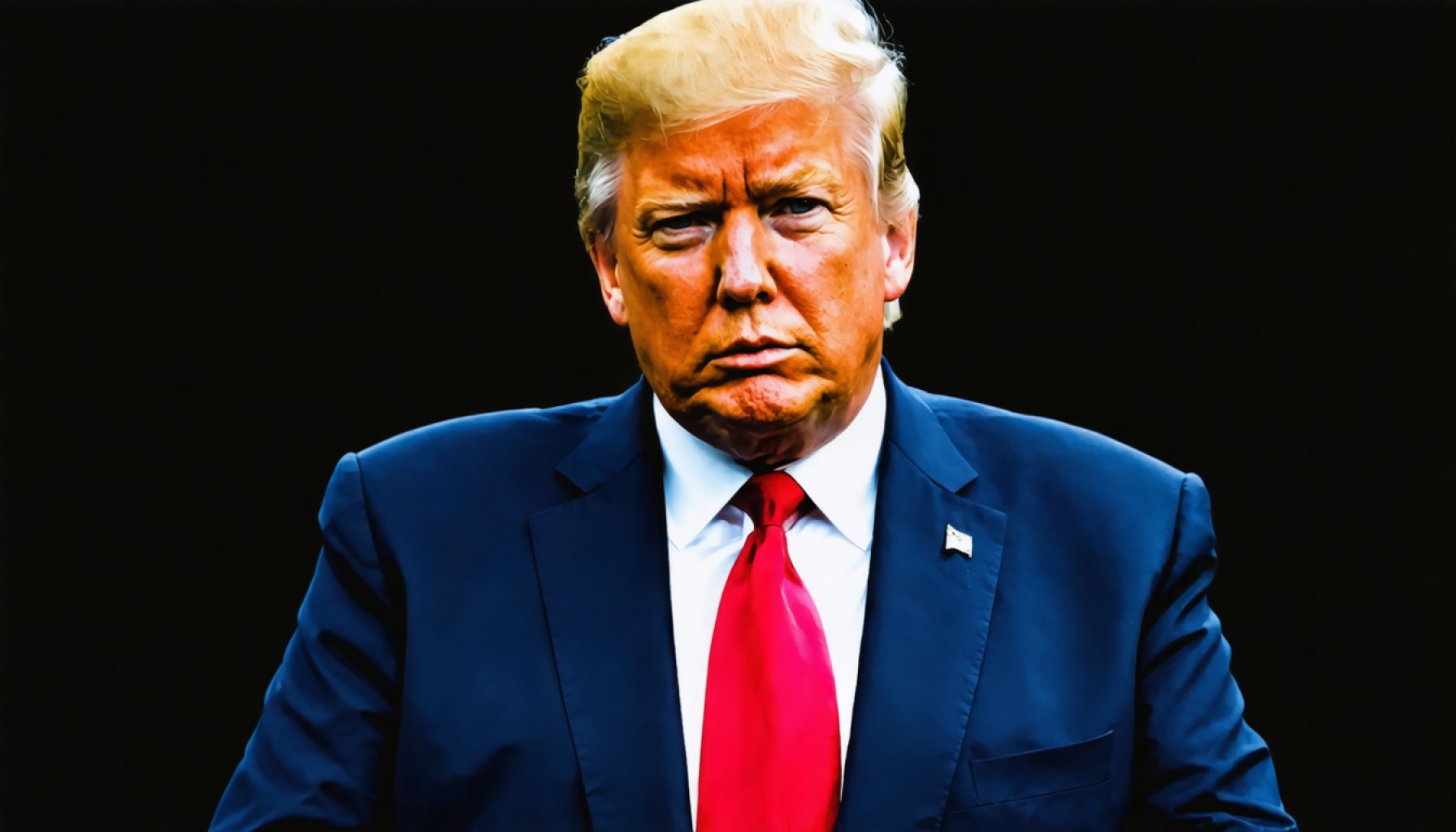- Donald Trump, from Mar-a-Lago, accuses Ukraine and President Volodymyr Zelensky of instigating their own crisis, labeling Zelensky as a “dictator.”
- Trump’s statements challenge NATO allies and diverge significantly from previous U.S. positions on Ukraine, as he suggests blocking a G7 resolution condemning Russia.
- He criticizes President Joe Biden’s leadership, framing it as backing a European conflict at America’s expense.
- Trump uses his platform to criticize geopolitical players, hinting at resolving conflicts under his potential leadership without showing direct support for Russia.
- His rhetoric reflects a strategy of leveraging international events to gain domestic political advantage, drawing both attention and skepticism.
Shimmering sunshine bounces off the pastel-hued marbles of Mar-a-Lago, casting long shadows over the day’s startling revelations. From this Floridian enclave, Donald Trump reshapes narratives yet again. This time, he targets Ukraine, a nation besieged and battling for its sovereignty, accusing it of igniting its own tragedy. The former U.S. President paints Volodymyr Zelensky, Ukraine’s resolute leader, not as a staunch defender, but as a “modest comedian” turned “dictator.”
The international community watches, mouths agape, as Trump’s words ripple across the globe. Nearly three years after Russia initiated its aggressive foray into Ukraine, Trump’s narrative diverges starkly from his predecessors, rattling even allies within NATO. His declarations suggest the U.S. stands poised to block a G7 resolution condemning Russia’s actions, a monumental shift that echoes through diplomatic circles.
Trump, whose previous remarks danced on neutrality’s thin ice, has shifted his focus. A relentless critique of Joe Biden’s leadership, he steadfastly positions himself as the bulwark against what he dubs “incompetence and stupidity.” Yet, he presents no overt allegiance to Putin, instead striking at Zelensky through economic jabs, accusing Biden of funding a “European war” on America’s dime.
Beneath his rhetoric lies a familiar strategy; using geopolitical turmoil as a stage for domestic battles, each criticism a brushstroke designed to muddy his political adversaries. His pronouncements promise an end to conflict, painting visions of peace achievable under his tenor. His critics raise eyebrows, questioning the motives behind Trump’s diplomatic acrobatics.
In this rapidly evolving saga, one thing is clear: Trump’s words are never idle. As sunlight fades on Mar-a-Lago’s polished facades, the shadows grow longer, leaving the world to ponder the narratives being woven—and the realities left in their wake.
The Potential Impact of Trump’s Statements on Ukraine and Global Diplomacy
How-To Steps & Life Hacks
Understanding Trump’s Diplomatic Strategy:
1. Analyze Historical Context: Review past international statements by Trump for a pattern.
2. Identify Key Players: Map out the influence of Trump’s remarks on global figures and organizations.
3. Track Economic Implications: Evaluate how these statements may impact international markets and military funding.
Real-World Use Cases
– Politics & Elections: Trump’s comments often serve as a barometer for U.S. political shifts and can influence voter sentiment.
– Diplomatic Relations: Countries might adjust their diplomatic stances based on changes in U.S. foreign policy under different administrations.
Market Forecasts & Industry Trends
– Defense Spending: Any significant policy shift regarding NATO or Ukraine could lead to fluctuations in U.S. and global defense budgets.
– Energy Markets: Russia’s involvement sharpens focus on energy dependencies; Trump’s policies could alter geopolitical energy dynamics.
Reviews & Comparisons
– Trump vs. Biden: Compare foreign policy strategies on handling Russian aggression.
– NATO’s Role: Review NATO’s evolving response strategies to uphold European security amid divergent U.S. narratives.
Controversies & Limitations
– Distorting Historical Narratives: Critics argue Trump simplifies complex international conflicts and sidelines historical context.
– Domestic Political Motivations: Suspicions linger about using international crises to distract from domestic issues and shift public focus.
Features, Specs & Pricing
– Public Statements Analysis: Evaluate consistency and impact through the lens of media and public opinion measurements.
Security & Sustainability
– Global Security Reevaluation: Threat assessments might alter if U.S. support for Ukraine wavers; NATO members may seek independent security measures.
– Sustainable Peace Efforts: Trump’s ‘peace promises’ require scrutinization of actual diplomatic agreements crafted.
Insights & Predictions
– Shifting Alliances: Expect potential reshuffling of international alliances, especially within Europe.
– U.S. Political Landscape: Trump’s actions might influence Republican strategies and the 2024 presidential election.
Tutorials & Compatibility
– Following International News: Use reputable news outlets to stay informed (e.g., BBC News, The Guardian).
– Analyzing Political Rhetoric: Online courses or books on political communication can be beneficial for deeper understanding.
Pros & Cons Overview
Pros:
– Potential Peace Talks: Trump’s rhetoric occasionally highlights peaceful resolutions, which could be beneficial if pursued diplomatically.
– Public Engagement: Generates discourse on U.S. foreign policy, encouraging civic engagement.
Cons:
– Heightened Tensions: Criticisms might exacerbate international relations.
– Loss of Credibility: Inconsistent policy positions could damage the U.S.’s standing in global diplomacy.
Actionable Recommendations
1. Stay Informed: Regularly update your understanding of geopolitical situations by reviewing multiple news sources.
2. Engage in Dialogue: Participate in discussions or forums on foreign policy to refine your insights.
3. Explore Related Topics: Delve deeper into U.S. foreign policy through educational resources or expert lectures.
For more insights and the latest news on international relations, visit the Economist.
By understanding the implications of high-profile political statements, readers can form well-rounded perspectives on significant global issues.
